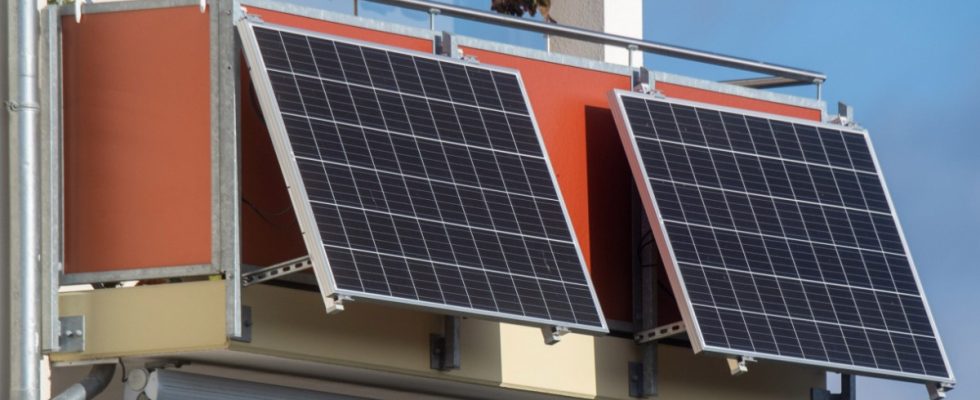Balcony power plants, i.e. small solar systems on the balcony, should in future be covered by household contents insurance against damage caused by risks such as fire or theft. The General Association of Insurers (GDV) has expanded its model conditions accordingly. Objects that are located outside the building are not actually protected. Now the GDV has made an exception to the rule for plug-in solar systems, as balcony power plants are also called.
With the change, the association is responding to inquiries from consumers who are concerned about potential damage. “There was uncertainty,” said a spokesman. “We were under a bit of pressure from customers here.” The GDV recommends that owners of balcony power plants should check with their provider whether they accept the new model conditions or whether they have already established appropriate protection. There is no automation.
A balcony power plant can be used to power the refrigerator and dishwasher
Small solar power plants for the balcony or garden house are becoming increasingly popular. The promise: For a price of a few hundred euros, consumers can contribute to the energy transition with a solar panel and at the same time save electricity and therefore money. The power is fed in via the included socket plug. A standard module with 400 watts is sufficient to operate a refrigerator and a dishwasher in a two-person household, writes the consumer advice center.
The GDV has no data on how often damage to such systems occurs. It is therefore not possible to assess how relevant the change in the model conditions is. After all, there will be clarity for consumers in the future. And for insurers it is a welcome opportunity to present themselves positively.
However, balcony power plants also have their pitfalls. This summer, the Federal Network Agency published a warning about problems with the solar inverters in some systems that convert the direct current generated into alternating current. The authority recommends that consumers make sure when purchasing that a product has a so-called CE mark.

